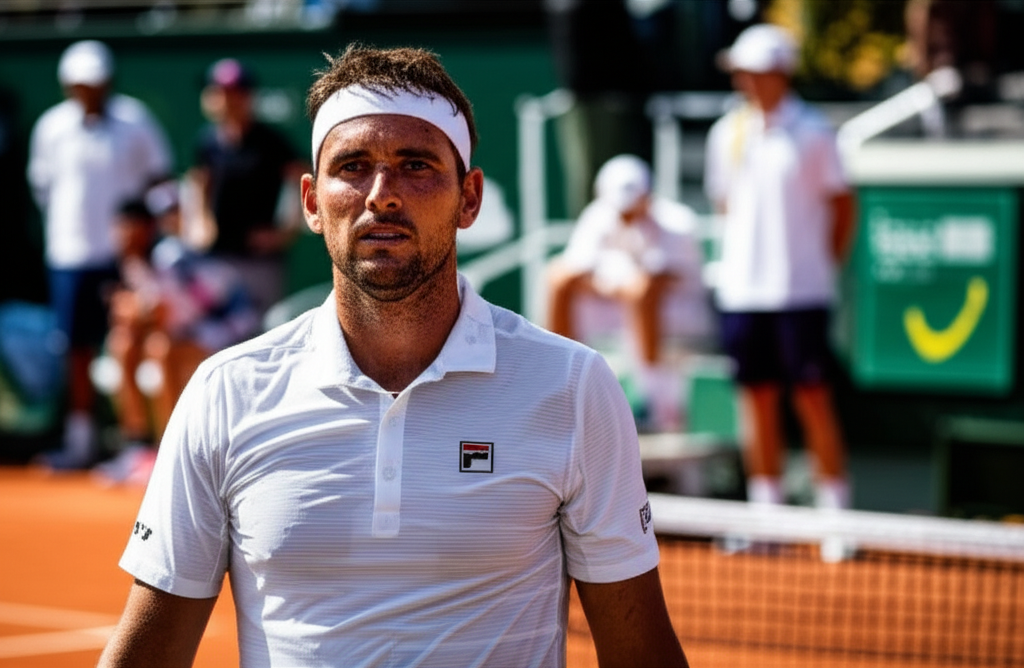World No. 4, Taylor Fritz, has voiced strong criticism against the ATP’s calendar, labeling its policies as “not the best” due to its increasingly congested schedule and the resulting player fatigue and withdrawals. His comments come amidst a growing chorus of top players expressing similar frustrations, highlighting concerns over player welfare and the sustainability of the current tour.

Player Concerns Over Demanding Schedule
Fritz’s critique focuses on the relentless nature of the ATP Tour, particularly the lack of sufficient rest periods between major tournaments. He described the constant expansion of the calendar as “insane” and argued that organizers should prioritize player rest over adding more events. This sentiment is echoed by many others in the sport, who point to an increased risk of injuries and mental burnout due to the packed schedule.
Impact of Extended Masters 1000 Events
A key point of contention for Fritz and other players is the ATP’s decision to extend many Masters 1000 tournaments to 12 days, from the previous seven. Seven out of nine Masters 1000 events now feature larger 96-player draws, stretching them across nearly two weeks, with only Monte Carlo and Paris retaining the one-week format. While the extended format provides rest days between matches, similar to Grand Slams, the overall impact contributes to a longer and more demanding season.
Withdrawals Highlight the Issue
The problem of player fatigue has been acutely demonstrated by a wave of high-profile withdrawals from significant tournaments. Recently, top stars like Jannik Sinner, Carlos Alcaraz, and Novak Djokovic all pulled out of the Canadian Open, a Masters 1000 event that begins just two weeks after Wimbledon. Aryna Sabalenka, WTA world No. 1, also withdrew from the women’s singles in Montreal, citing fatigue after reaching seven finals in the season, including the Australian and French Opens. Fritz himself, who reached the semi-finals at Wimbledon, was back in action in Washington shortly after, underscoring the limited recovery time available to players.
Mandatory Participation Rules
Fritz specifically highlighted a new ATP rule that mandates players participate in a certain number of ATP 500 events, or they receive a zero on their record. He explained that due to missing two ATP 500 events earlier in the year because of injury, he was compelled to play in Washington to meet his quota, even though he “really could have used a rest week.” This rule, according to Fritz, removes flexibility from players’ schedules and negatively impacts their well-being.

ATP’s Stance and Player Autonomy
ATP Chairman Andrea Gaudenzi has responded to the criticism by emphasizing that tennis players are independent workers who have the autonomy to decide their own schedules. He noted that unlike team sports, players are not employees of a club and can choose which tournaments to participate in. Gaudenzi also suggested that players could opt to play fewer exhibition matches outside the main tour if they are concerned about rest. He acknowledged that rankings do compel players to participate in major tournaments like Grand Slams, Masters 1000s, and the ATP Finals.

Calls for a Shorter Season and Prioritizing Player Welfare
Despite the ATP’s stance, many players, including Alexander Zverev, Carlos Alcaraz, Daniil Medvedev, and Alex de Minaur, have consistently called for a shorter season and a more player-friendly structure. Zverev has previously stated that “there is no sport in which so much is played, it cannot continue like this,” questioning if financial considerations outweigh players’ welfare. Alcaraz expressed similar concerns, saying the demanding schedule could “kill us” and impact mental and physical health. Medvedev has suggested staging top tournaments earlier in the year, with lower-tier ATP 250 tournaments moved to an optional slot later. De Minaur has highlighted the financial and ranking penalties for skipping tournaments, even due to injury, calling the expectations “ridiculous.”
While there is debate within the tennis community, with some, like Dan Evans, expressing little sympathy for those complaining about the busy calendar, the growing number of withdrawals and outspoken criticisms from top players indicate a significant and ongoing challenge for the ATP regarding its tour schedule.








No Comment! Be the first one.